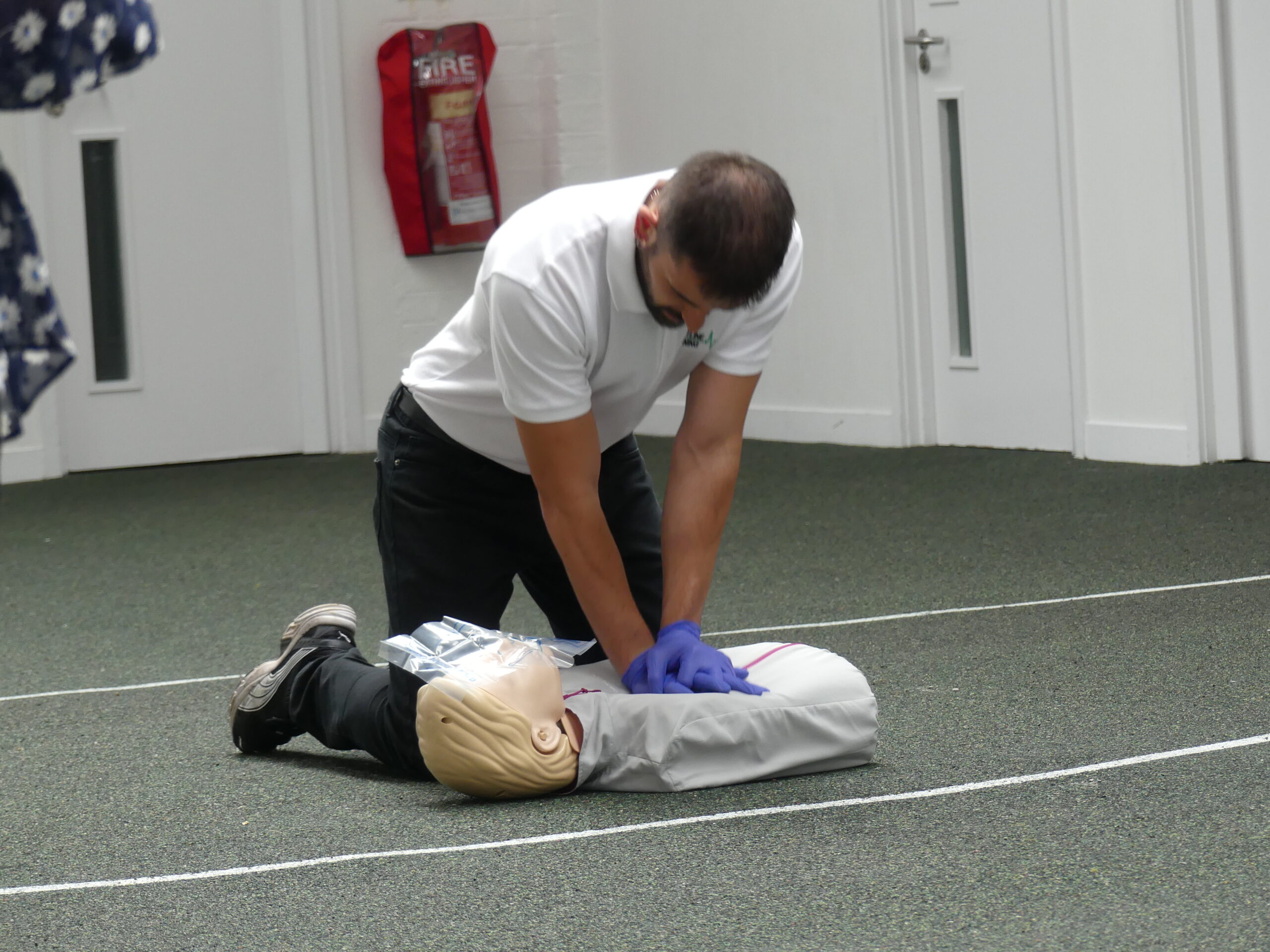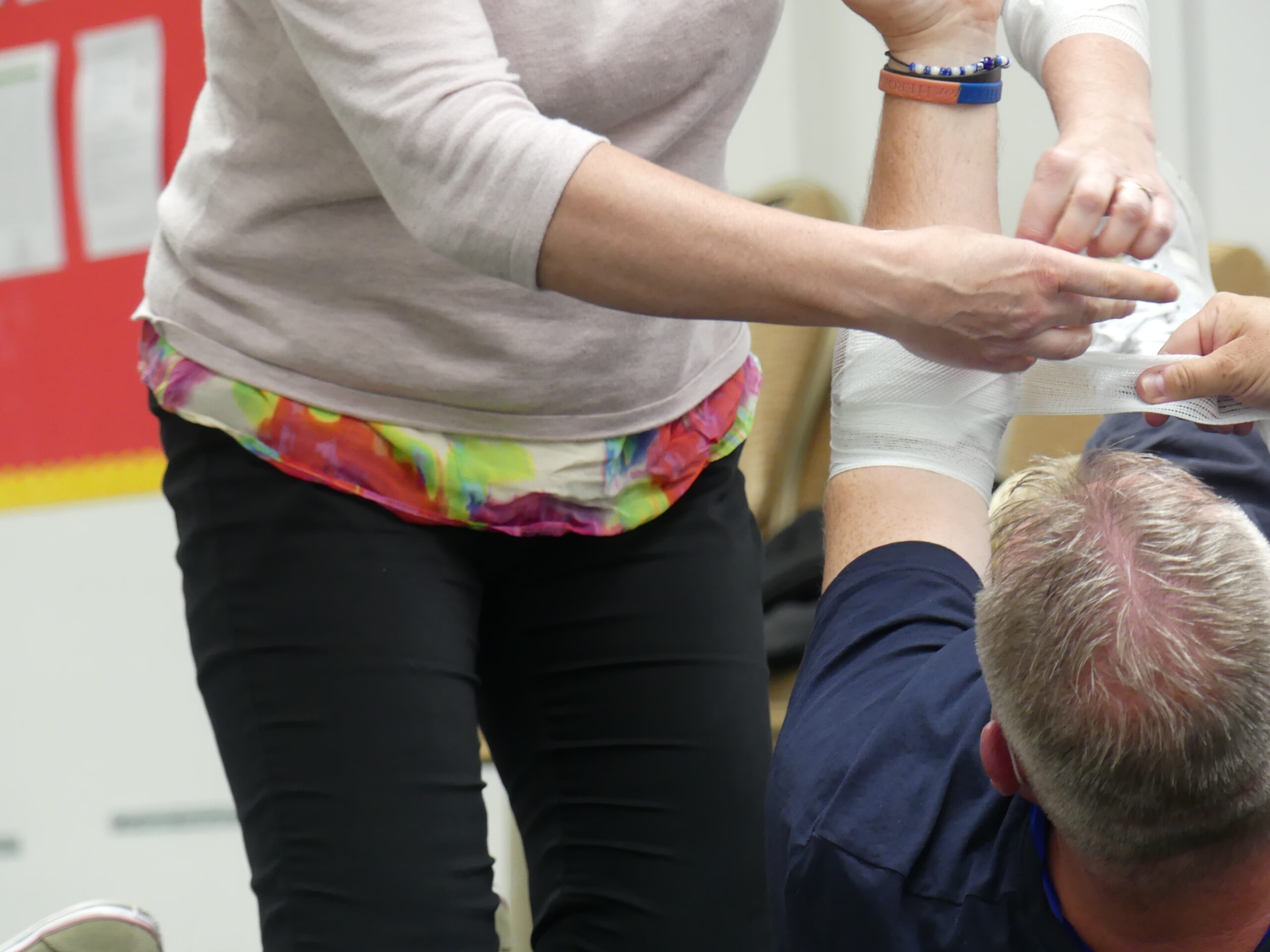Heart Attack
A heart attack occurs when there’s a sudden blockage in the blood supply to a section of the heart, typically caused by a blood clot.

Emergency Advice ⚠️
If you suspect a heart attack:
- Immediately dial 999 for emergency assistance.
- Help the casualty sit down comfortably, supporting their head and shoulders while keeping their knees bent.
- Give 300mg of aspirin for them to chew, unless they are under 16 years old or allergic to aspirin.
- Continuously monitor their condition and level of responsiveness.
- Prepare to give CPR if they become unresponsive.
What is it?
A heart attack, medically known as a myocardial infarction, occurs when the blood flow to a part of the heart is blocked. This blockage deprives the heart muscle of oxygen, causing damage or death to the affected muscle cells. The blockage is often caused by a clot or is a result of a build-up of plaque in the coronary arteries, which supply the heart with blood.
Recognition features
Signs and symptoms
Someone having a heart attack could:
- experience a crushing pain in the centre of their chest that might radiate towards the jaw and extend to one or both arms.
- feel short of breath or struggle to breathe normally.
- show excessive sweating.
- report pain similar to indigestion.
- suffer a sudden collapse.
- express feelings of dizziness.
- show paleness, potentially with bluish lips.
- have a fast, weak, or irregular pulse.
- have a sense of impending doom
Treatment
- Call 999 or 112 immediately for emergency assistance, informing them of the suspected heart attack.
Try not to panic your casualty
- Assist the casualty into a comfortable position, preferably on the floor, with knees bent and head and shoulders supported. You can use cushions behind them or under their knees for added support.
- Provide one aspirin tablet (300mg) and instruct the casualty to chew it slowly. Do not administer aspirin if the casualty is under 16 years old or allergic to it.
- If the casualty has angina medication, encourage them to take it.
Angina Medication – Glycerol TriNitrate (GTN) is a spray that goes under the tongue. Assist the casualty if necessary
- Continuously monitor the casualty’s responsiveness until emergency assistance arrives. If they become unresponsive, prepare to initiate CPR.
Train with us
This subject is covered in detail on the following courses that we offer:
Be prepared for anything with our first aid supplies 👀
-
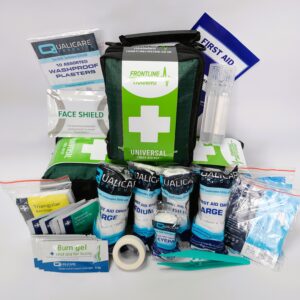 Universal First Aid Kit£15.00
Universal First Aid Kit£15.00 -
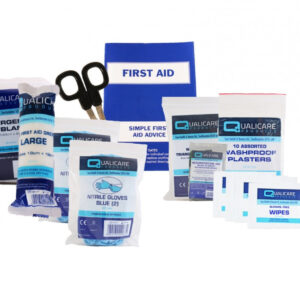 First Aid Kit – Refill£7.95
First Aid Kit – Refill£7.95 -
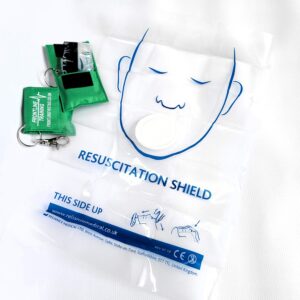 CPR Face Shield Key Ring£3.50
CPR Face Shield Key Ring£3.50
